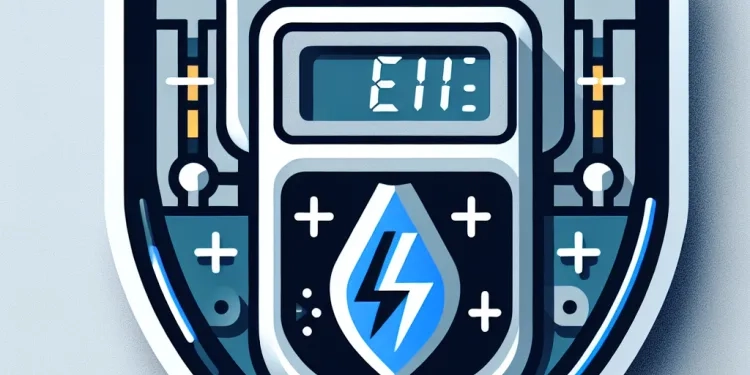
Find A Professional
More Items From Ergsy search
-
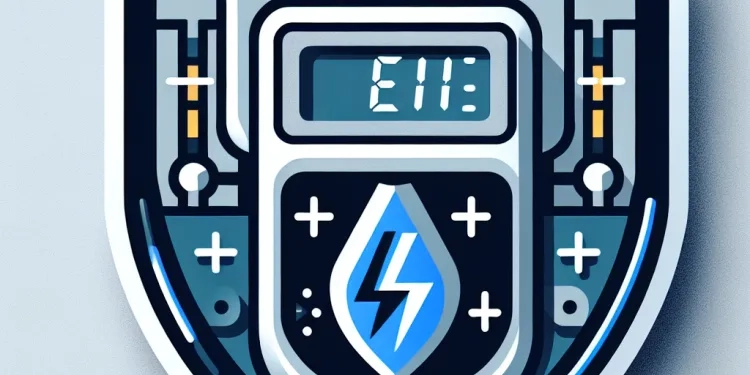
Does the energy price cap apply to all energy tariffs?
Relevance: 100%
-
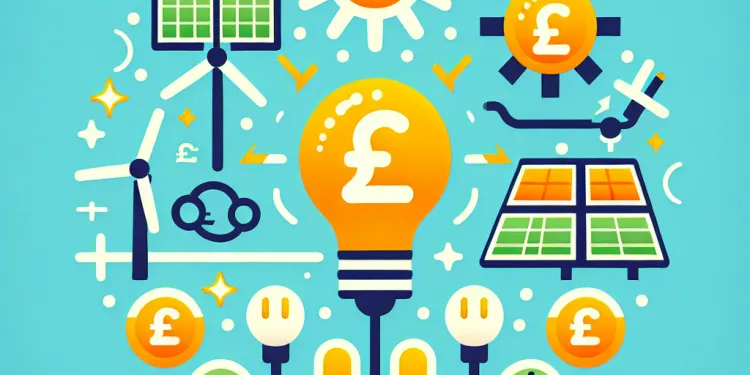
How does the energy price cap affect green energy tariffs?
Relevance: 95%
-

Can the energy price cap go down as well as up?
Relevance: 90%
-
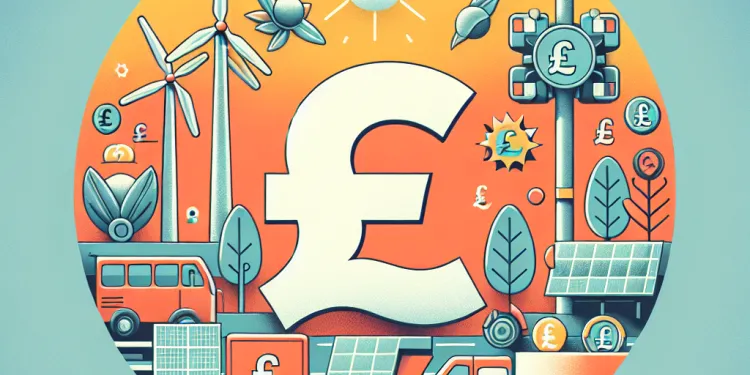
What is the Energy Price Cap in the UK?
Relevance: 88%
-
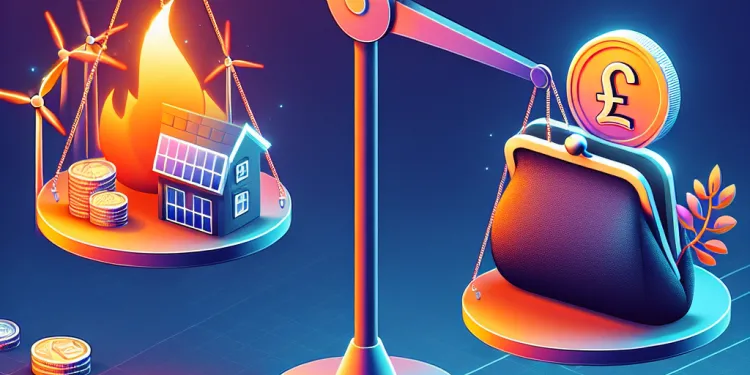
Is the energy price cap the same for everyone?
Relevance: 87%
-
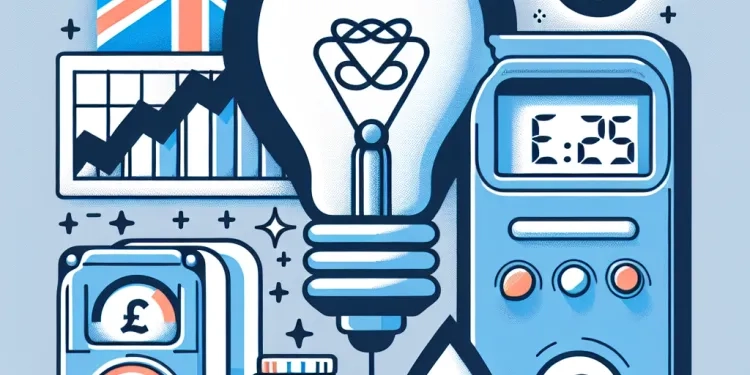
How does the energy price cap affect my energy bills?
Relevance: 85%
-
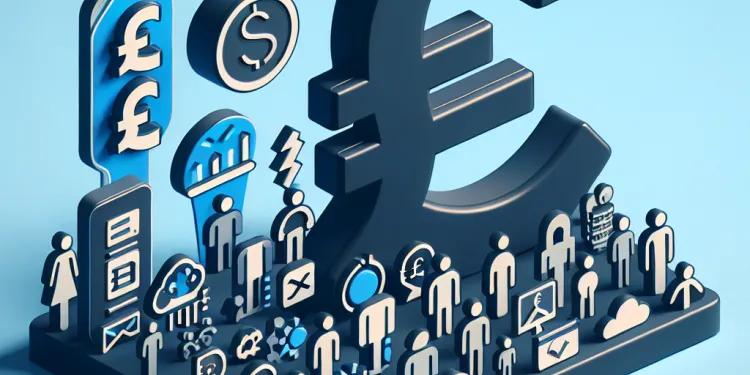
What is the energy price cap?
Relevance: 85%
-
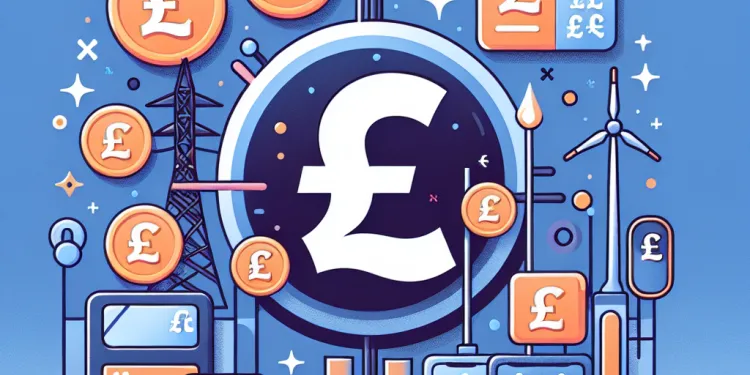
Why was the energy price cap introduced?
Relevance: 80%
-
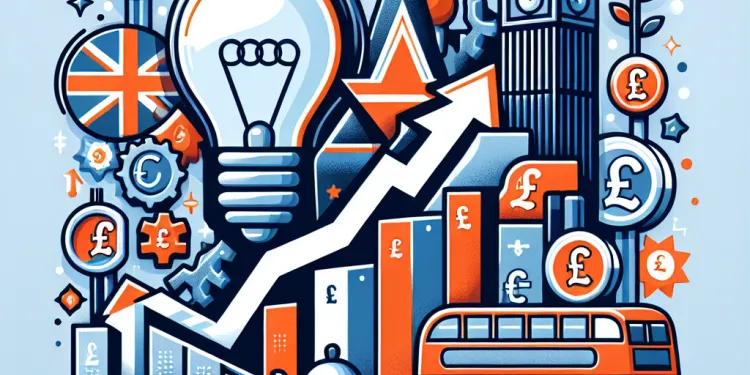
Is the energy price cap being reviewed due to market changes?
Relevance: 79%
-
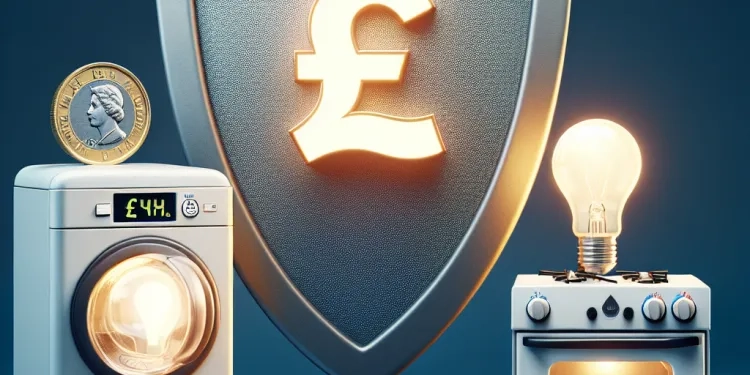
Does the energy price cap guarantee my total bill?
Relevance: 79%
-
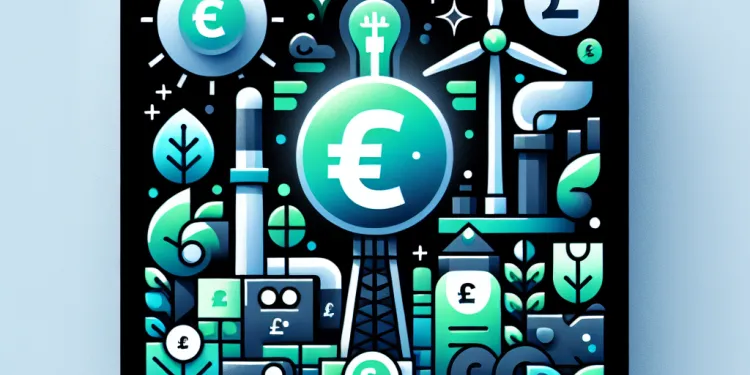
Where can I find more information about the energy price cap?
Relevance: 78%
-
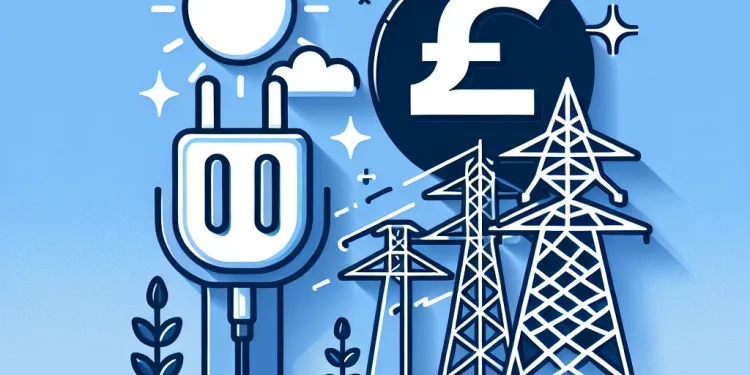
When was the energy price cap introduced?
Relevance: 78%
-
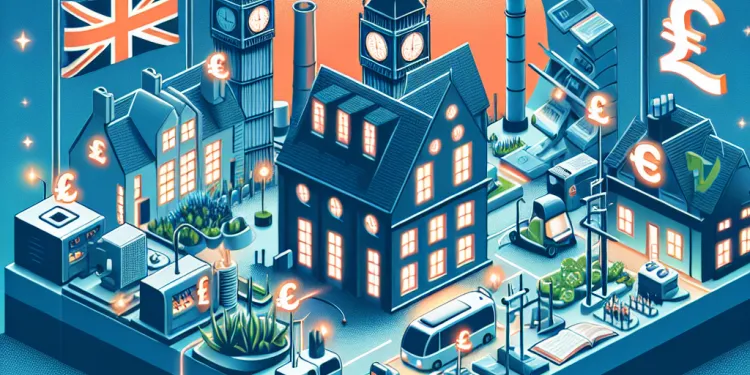
Can energy suppliers charge less than the price cap?
Relevance: 78%
-
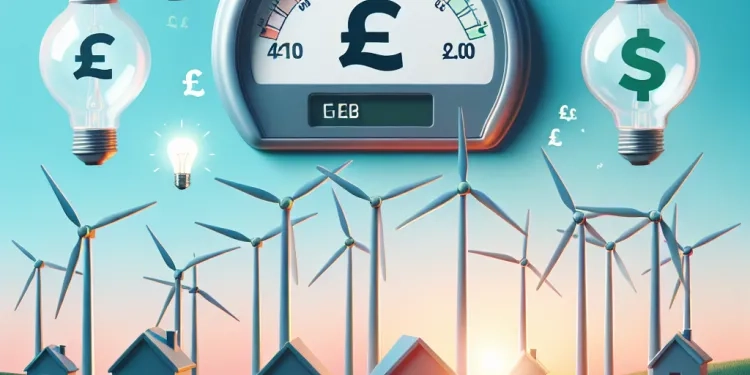
How often is the energy price cap reviewed?
Relevance: 78%
-
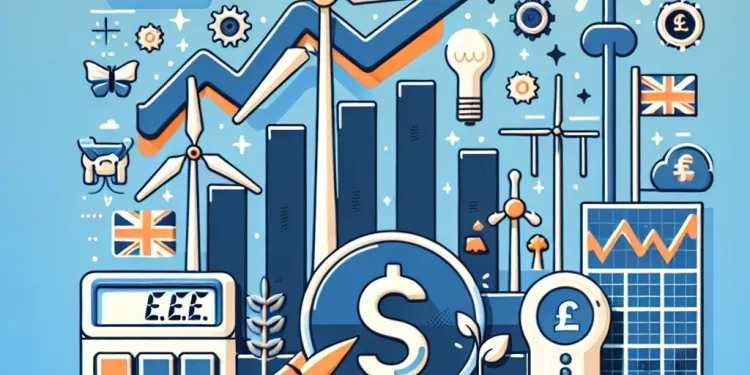
What factors influence changes to the energy price cap?
Relevance: 74%
-
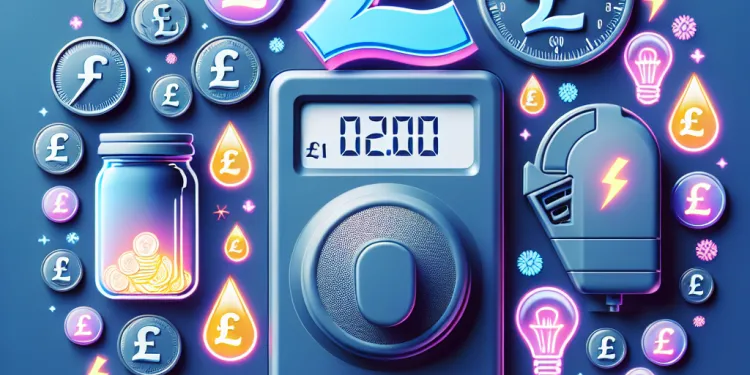
Does the energy price cap apply to prepayment meters?
Relevance: 68%
-
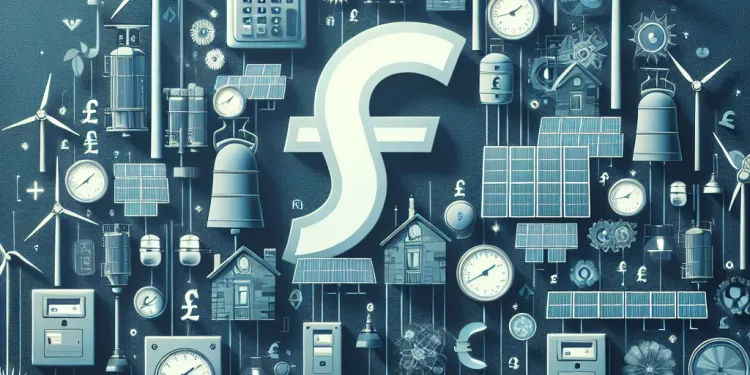
How is the energy price cap calculated?
Relevance: 67%
-
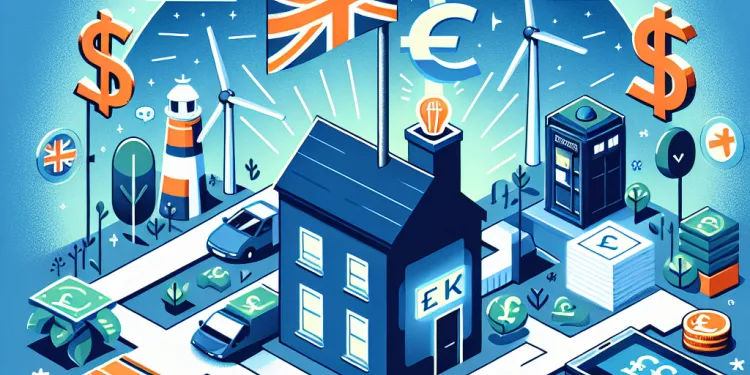
Can I still save money by switching suppliers if the price cap is in place?
Relevance: 63%
-
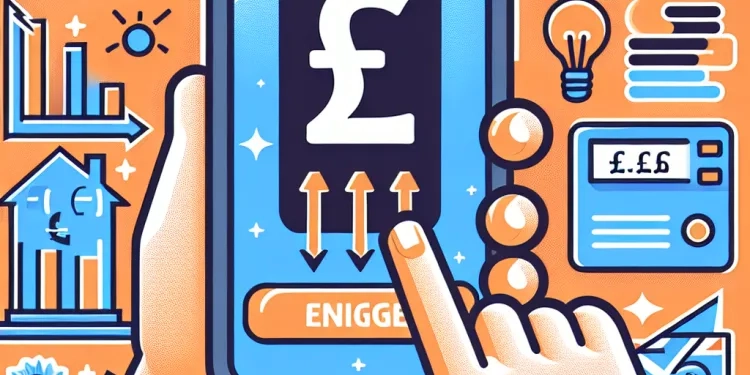
What happens if my energy supplier charges above the price cap?
Relevance: 60%
-
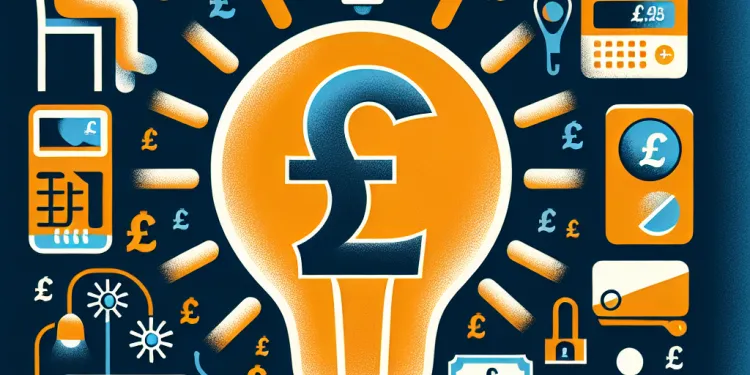
Energy Prices Set to Rise: How to Keep Your Bills Down
Relevance: 42%
-
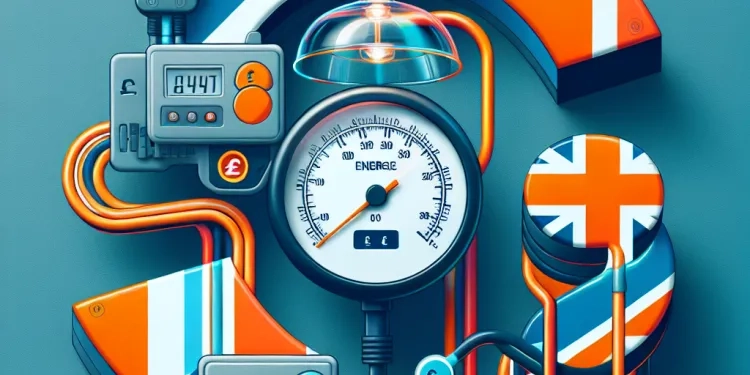
Who sets the energy price cap?
Relevance: 39%
-
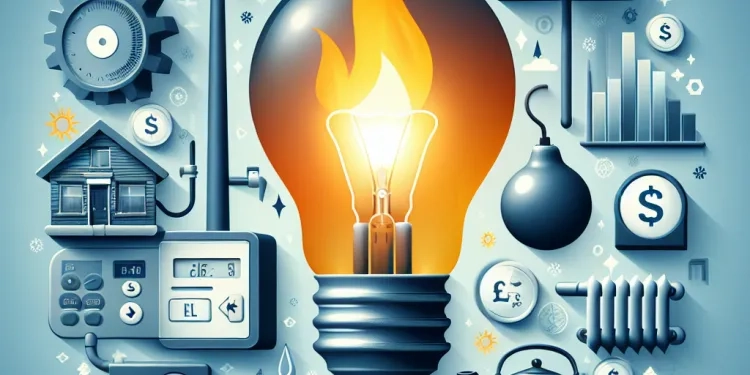
Impact of Rising Energy Prices on Household Budgets
Relevance: 34%
-

How is the price of Bitcoin determined?
Relevance: 32%
-

Impact of Rising Energy Costs on Family Budgets
Relevance: 28%
-

Will the Trump Tariffs affect my business?
Relevance: 28%
-
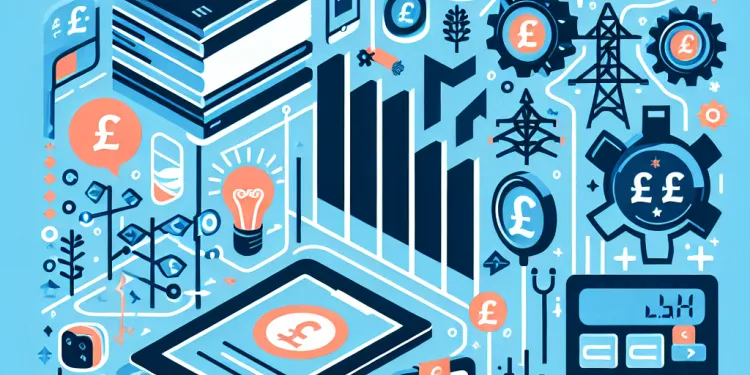
What should I do if my energy bill is unexpectedly high?
Relevance: 26%
-

What is the Octopus Energy Ofgem Compensation?
Relevance: 26%
-

How do I claim Ofgem compensation from Octopus Energy?
Relevance: 26%
-

Does Octopus Energy offer any compensation beyond Ofgem requirements?
Relevance: 25%
-

Can I contact Ofgem directly for a compensation dispute with Octopus Energy?
Relevance: 24%
-

How long does it take to receive Ofgem compensation from Octopus Energy?
Relevance: 24%
-

How is Ofgem compensation from Octopus Energy typically paid out?
Relevance: 23%
-

Can I dispute the compensation amount offered by Octopus Energy?
Relevance: 22%
-

How much compensation can be expected from Octopus Energy due to Ofgem rules?
Relevance: 21%
-

Can Ofgem or Octopus Energy change compensation rules in the future?
Relevance: 21%
-
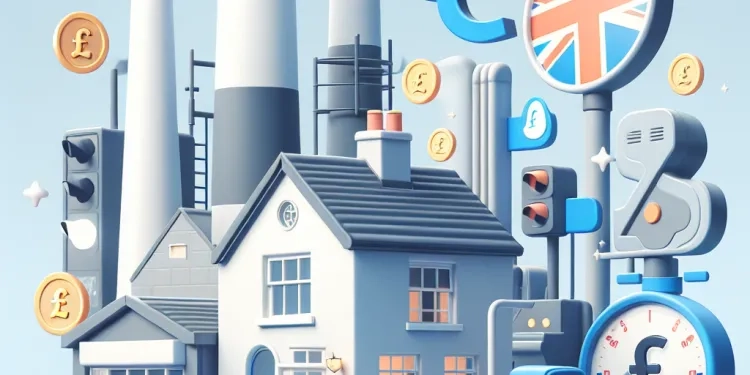
Does Ofgem handle compensation claims directly?
Relevance: 21%
-

Who is eligible for Ofgem compensation with Octopus Energy?
Relevance: 20%
-
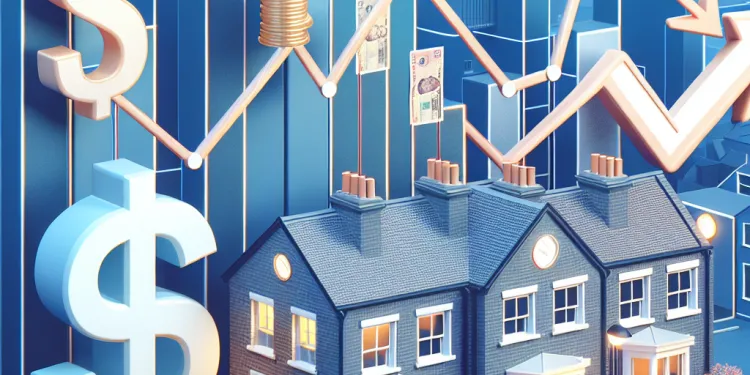
UK House Prices Fall for Third Consecutive Month
Relevance: 19%
-

What is the role of Ofgem in determining compensation for Octopus Energy customers?
Relevance: 19%
-

What is Ofgem Compensation related to Octopus Energy?
Relevance: 19%
Understanding the Energy Price Cap
The energy price cap is a policy mechanism put in place by Ofgem, the energy regulator for Great Britain. It is designed to limit the amount that energy suppliers can charge customers on certain types of tariffs. Introduced in 2019, the cap aims to protect consumers from unwarranted price hikes, ensuring that they pay a fair price for their energy.
Application of the Price Cap
Not all energy tariffs are subject to the energy price cap. The cap primarily applies to customers on default tariffs, which are often referred to as standard variable tariffs (SVTs). These are typically the tariffs that customers are placed onto automatically when their fixed-term contracts expire, and they do not choose a new plan. Default tariffs have variable rates, meaning the price per unit of energy can fluctuate over time.
Exceptions to the Energy Price Cap
Fixed tariffs, which offer customers a set price per unit of energy for a defined period, are not subject to the energy price cap. Customers who opt for fixed-rate tariffs agree to a contract that specifies the energy price, safeguarding them from any price changes during the contract period. However, once the fixed-term ends, customers may be moved to a capped SVT if they do not select a new plan or renew their contract.
Prepayment Meters
The energy price cap also extends to customers using prepayment meters, a system often used by households to manage their energy costs by paying in advance. The cap for these consumers is evaluated separately and tends to differ slightly from the cap applied to default tariff customers. This separate assessment reflects the different cost structures involved in providing prepayment meter services.
Impact on Consumers
The energy price cap aims to ensure fairness and protect households from excessive energy costs. While it has helped millions of consumers by keeping energy prices in check, it also means that the price cap is subject to regular review and adjustment to reflect wholesale energy costs. This could lead to price changes twice a year, depending on market conditions.
Switching Tariffs
Consumers are encouraged to explore their energy options regularly. Although the energy price cap offers an element of protection, the market often offers competitive deals. Switching from a default tariff to a fixed-rate plan can lead to more predictable bills and potential savings, especially if market prices rise. Ofgem provides resources for consumers to compare energy tariffs and find suitable deals.
Conclusion
In summary, the energy price cap applies to default and prepayment meter tariffs, but not to fixed-rate contracts. Although effective in providing cost protection, consumers should remain informed and proactive about their energy choices to maximize savings and budget predictably. Regularly checking for better deals can be a prudent strategy in managing household energy costs.
What is the Energy Price Cap?
The energy price cap is a rule to keep energy prices fair. It was made by Ofgem, the group that watches over energy companies in Great Britain. This rule stops companies from charging too much for electricity and gas. It started in 2019 to help people pay a fair price for their energy.
When Does the Price Cap Apply?
The energy price cap does not cover all energy plans. It mostly helps people on "default tariffs," also called "standard variable tariffs" (SVTs). People get these tariffs when their old contract ends, and they don't pick a new plan. These tariffs have prices that can change over time.
Exceptions to the Price Cap
Some energy plans, called "fixed tariffs," are not under the price cap. With fixed tariffs, the price stays the same for a certain time. This means the price you pay for energy won't change during the contract. But, when the contract ends, if you don't choose a new plan, you might move to a tariff with a price cap.
Prepayment Meters
The price cap also helps people who pay for energy before they use it using prepayment meters. The cap for these people is a bit different from others. This is because it costs more to provide this type of service.
How the Price Cap Helps
The energy price cap makes sure energy costs are fair and not too high. It has helped many people pay less for energy. The price cap is checked and changed regularly. This means the price can change up to two times a year, depending on energy costs.
Changing Energy Plans
It's good for people to check their energy plans often. Even with a price cap, there are other good deals out there. Switching from a default tariff to a fixed-rate plan can keep your bills steady. Ofgem provides tools to help you compare and choose the best energy deals.
Final Thoughts
The energy price cap helps people on default and prepayment meter tariffs, but not on fixed-rate plans. It's good to know about your energy choices so you can save money. Checking for better deals is a smart way to manage your energy costs.
Frequently Asked Questions
What is the energy price cap?
The energy price cap is a government-imposed limit on how much energy suppliers can charge customers on default or standard variable tariffs for each unit of energy used.
Does the energy price cap apply to fixed-rate tariffs?
No, the energy price cap does not apply to fixed-rate tariffs. It only applies to default or standard variable tariffs.
Which tariffs are affected by the energy price cap?
The energy price cap affects default tariffs and standard variable tariffs. These are typically the tariffs customers are moved to when their fixed-term deal ends without choosing a new one.
Does the energy price cap affect prepayment meter tariffs?
Yes, the energy price cap does apply to prepayment meter tariffs, but it's a separate cap specifically for prepayment meters.
Can suppliers charge more than the energy price cap?
No, energy suppliers cannot charge more than the maximum rate set by the energy price cap for customers on affected tariffs.
How often is the energy price cap reviewed?
The energy price cap is typically reviewed every six months, in April and October.
Who sets the energy price cap?
The energy price cap is set by Ofgem, the energy regulator for Great Britain.
Does the energy price cap guarantee my total energy bill?
No, the cap limits the cost per unit of energy, but your total bill will still vary with the amount of energy you use.
Why does the energy price cap exist?
The energy price cap exists to protect consumers from unfair price hikes and to ensure fairness in the energy market.
Are businesses covered by the energy price cap?
No, the energy price cap applies only to domestic customers, not businesses.
How does the energy price cap affect standing charges?
The energy price cap also applies to standing charges, which are capped as part of the overall price limitations.
Does the energy price cap apply to all energy suppliers?
Yes, the energy price cap applies to all licensed energy suppliers operating in the market for domestic customers.
Can I switch to a tariff not affected by the price cap?
Yes, you can switch to a fixed-rate or other alternative tariff, which are not subject to the price cap.
How can I find out if my tariff is subject to the price cap?
You can check your energy bill or contact your supplier to see if you are on a default or standard variable tariff, which are subject to the cap.
Does the energy price cap apply to gas and electricity?
Yes, the energy price cap applies to both gas and electricity tariffs for applicable customers.
What happens if my supplier charges above the price cap?
If your supplier charges above the price cap, they may be subject to regulatory action and fines, and customers should report this to Ofgem.
Is the energy price cap the same across the UK?
The energy price cap set by Ofgem applies across Great Britain but may differ between regions due to local distribution costs.
Do I need to do anything to benefit from the energy price cap?
If you are on a default or standard variable tariff, you will automatically benefit from the price cap.
What is the difference between the price cap and a fixed-rate tariff?
The price cap limits the cost per unit for default tariffs, whereas a fixed-rate tariff offers a set rate per unit for a contracted period, unaffected by the cap.
Is it cheaper to be on a tariff affected by the price cap?
Not necessarily; customers might find cheaper deals on the market with fixed or alternative tariffs, which are not subject to the price cap.
What is the energy price cap?
The energy price cap is a limit on how much money companies can charge people for gas and electricity.
This helps make sure prices stay fair for everyone.
If you want to know more or need help with bills, you can:
- Ask someone you trust to explain it to you.
- Call a helpline for advice on energy bills.
- Use simple apps or websites that explain energy costs.
The energy price cap is a rule made by the government. This rule stops energy companies from charging too much money. It sets a maximum price for each unit of energy you use if you are on a common or default plan.
Does the energy price limit apply to fixed-rate deals?
An energy price limit means there's a maximum price for gas and electricity. This helps keep costs lower.
With fixed-rate deals, you pay the same price for energy for a certain time. The energy price limit does not usually change these prices.
If you don't understand, ask someone for help. You can also use tools like a dictionary to learn new words.
No, the energy price limit does not apply to fixed-rate plans. It only applies to basic or changeable rate plans.
What energy plans are changed by the price limit?
The energy price cap helps keep the cost of certain energy plans from getting too high. These plans are called default tariffs and standard variable tariffs. People usually end up on these plans when their special energy deal finishes and they don't pick a new one.
Does the energy price limit change costs for prepayment meters?
Yes, there is a limit on energy prices for people who pay before they use energy. This limit is just for prepayment meters.
Can energy companies charge more than the price limit?
Energy companies cannot charge you more than the set price limit. This limit is there to protect you from high energy costs.
Tips to help:
- If you get a bill that seems too high, ask someone you trust to help check it.
- You can use tools like bill checkers online to understand your bill better.
- Contact your energy company if you have questions or need help.
No, energy companies cannot charge you more than the limit set by the government for certain energy deals.
How often do they check the energy price cap?
They check the energy price cap every few months. This helps to keep energy prices fair for everyone.
If you find it hard to understand, you can ask someone to explain it to you. You can also use pictures or simple charts to help.
Every six months, in April and October, they check the energy price cap.
Who decides how much energy can cost?
The energy price cap is the most you have to pay for energy. Ofgem, a group that looks after energy in Great Britain, decides this cap.
Does the energy price cap make my whole energy bill fixed?
An energy price cap is a limit on how much you pay for each unit of energy. It doesn't set your entire bill. You might use more energy, which means a higher bill.
Helpful tip: Try using less energy to save money. You can also use a calculator to check what you will pay.
No, the cap does not stop your bill from going up. It just helps keep the price for each unit of energy lower. But if you use more energy, your bill will still be higher.
To keep track of your energy use, you can:
- Set a budget for your energy use.
- Turn off lights when you leave a room.
- Use energy-saving bulbs and appliances.
- Check your bill each month to see how much energy you used.
Why is there a limit on energy prices?
The energy price cap is a rule that stops energy prices from getting too high.
It helps make sure people pay a fair price for gas and electricity.
If you need help with understanding your energy bill, you can ask a friend or family member.
You can also use a calculator to check how much energy you used.
The energy price cap helps keep energy costs fair. It stops energy prices from going up too much. This protects people who buy energy.
Does the energy price cap help businesses?
No, the energy price cap is only for homes, not for businesses.
What is the energy price cap and how does it change standing charges?
The energy price cap is a limit on how much you pay for gas and electricity at home. It helps keep your bills lower.
A standing charge is a small cost you pay every day to have gas and electricity, even if you don't use any. The cap can change how much this standing charge is.
Helpful ways to understand:
- Ask someone to explain it in their own words.
- Use online videos or apps that explain energy bills simply.
The energy price cap helps keep costs down. This also means the basic daily fee, called a standing charge, cannot go too high.
Does the energy price cap apply to all energy suppliers?
The energy price cap is a rule that limits how much energy companies can charge for gas and electricity. It is meant to help people pay fair prices for their energy.
This rule applies to most energy suppliers. But, it is good to check with your own supplier to be sure.
If you need help understanding more, you can:
- Ask someone you trust to explain it.
- Use pictures or videos to learn more.
- Call your energy supplier and ask them questions.
Yes, the energy price cap is for all energy companies that have a license. This cap is for their customers at home.
Can I change to a plan without a price limit?
You might want to change your energy plan. Some plans have a price limit to protect how much you pay. Other plans do not have this price limit.
If you want to see other plans, you can:
- Ask your energy provider about different plans.
- Use online comparison tools to see different plans and prices.
- Talk to someone who can help you understand the choices.
These steps can help you pick the best plan for you.
Yes, you can change to a different type of payment plan called fixed-rate. This plan doesn't change with the price cap.
How can I check if my plan is limited by the price cap?
You can look at your energy bill or ask your energy company if you are on a standard plan. This plan is covered by a price cap.
Does the energy price limit cover both gas and electricity?
The energy price limit helps keep energy costs low. It covers both gas and electricity. This means there is a limit on how much you pay for each.
If you are confused, you can ask someone you trust for help. Or you can use a reading tool to read it out loud.
Yes, the energy price cap is like a limit on how much you have to pay for gas and electricity. It helps make sure bills don't cost too much.
What if my supplier asks for too much money?
If your supplier is charging too much money, they might get into trouble and have to pay a fine. You should tell Ofgem if this happens.
Is the energy price cap the same everywhere in the UK?
No, the energy price cap is not always the same in all places in the UK. It can change depending on where you live.
Try using pictures or simple charts to understand more. Ask someone you trust to explain if you need help.
The energy price cap is a limit on how much energy companies can charge for gas and electricity. This rule applies to everywhere in Great Britain. But the prices might be a little different in some places because it costs more or less to get energy to those areas.
Some tools that can help with understanding:
- Text-to-Speech Tools: These can read the text out loud to you.
- Dictionary Apps: These can explain words that are hard to understand.
- Highlighting Tools: These can help you keep track of where you are when reading.
Can I get help with my energy bills without doing anything?
If you have a basic or regular energy plan, you will automatically get help with the price limit.
What is the difference between a price cap and a fixed-rate tariff?
A "price cap" is the most money you can be asked to pay for energy. It stops bills from getting too high too fast.
A "fixed-rate tariff" is a set price for energy that stays the same for a certain amount of time, like one year. Your bill won't change even if energy prices go up.
To understand better, you can use helpful tools like pictures or videos. Talking to someone like a friend or family member can also help explain more.
The price cap means there is a top limit on how much you pay for energy. This is for people who have not picked a special plan.
A fixed-rate tariff lets you pay the same price for energy for a time you agree on, no matter what happens to prices. The price cap does not change this price.
Is a price cap tariff cheaper?
A price cap tariff can help keep prices low. It stops prices from going too high. It might save you money.
If you want help with money choices, you can:
- Ask someone you trust for advice.
- Use a calculator tool online to see costs.
- Check with your energy company if this option is good for you.
No, not always. People might find cheaper prices that are not limited by the price cap. These can be fixed deals or other types of offers.
Useful Links
- Ergsy carfully checks the information in the videos we provide here.
- Videos shown by Youtube after a video has completed, have NOT been reviewed by ERGSY.
- To view, click the arrow in centre of video.
- Most of the videos you find here will have subtitles and/or closed captions available.
- You may need to turn these on, and choose your preferred language.
- Go to the video you'd like to watch.
- If closed captions (CC) are available, settings will be visible on the bottom right of the video player.
- To turn on Captions, click settings .
- To turn off Captions, click settings again.
More Items From Ergsy search
-

Does the energy price cap apply to all energy tariffs?
Relevance: 100%
-

How does the energy price cap affect green energy tariffs?
Relevance: 95%
-

Can the energy price cap go down as well as up?
Relevance: 90%
-

What is the Energy Price Cap in the UK?
Relevance: 88%
-

Is the energy price cap the same for everyone?
Relevance: 87%
-

How does the energy price cap affect my energy bills?
Relevance: 85%
-

What is the energy price cap?
Relevance: 85%
-

Why was the energy price cap introduced?
Relevance: 80%
-

Is the energy price cap being reviewed due to market changes?
Relevance: 79%
-

Does the energy price cap guarantee my total bill?
Relevance: 79%
-

Where can I find more information about the energy price cap?
Relevance: 78%
-

When was the energy price cap introduced?
Relevance: 78%
-

Can energy suppliers charge less than the price cap?
Relevance: 78%
-

How often is the energy price cap reviewed?
Relevance: 78%
-

What factors influence changes to the energy price cap?
Relevance: 74%
-

Does the energy price cap apply to prepayment meters?
Relevance: 68%
-

How is the energy price cap calculated?
Relevance: 67%
-

Can I still save money by switching suppliers if the price cap is in place?
Relevance: 63%
-

What happens if my energy supplier charges above the price cap?
Relevance: 60%
-

Energy Prices Set to Rise: How to Keep Your Bills Down
Relevance: 42%
-

Who sets the energy price cap?
Relevance: 39%
-

Impact of Rising Energy Prices on Household Budgets
Relevance: 34%
-

How is the price of Bitcoin determined?
Relevance: 32%
-

Impact of Rising Energy Costs on Family Budgets
Relevance: 28%
-

Will the Trump Tariffs affect my business?
Relevance: 28%
-

What should I do if my energy bill is unexpectedly high?
Relevance: 26%
-

What is the Octopus Energy Ofgem Compensation?
Relevance: 26%
-

How do I claim Ofgem compensation from Octopus Energy?
Relevance: 26%
-

Does Octopus Energy offer any compensation beyond Ofgem requirements?
Relevance: 25%
-

Can I contact Ofgem directly for a compensation dispute with Octopus Energy?
Relevance: 24%
-

How long does it take to receive Ofgem compensation from Octopus Energy?
Relevance: 24%
-

How is Ofgem compensation from Octopus Energy typically paid out?
Relevance: 23%
-

Can I dispute the compensation amount offered by Octopus Energy?
Relevance: 22%
-

How much compensation can be expected from Octopus Energy due to Ofgem rules?
Relevance: 21%
-

Can Ofgem or Octopus Energy change compensation rules in the future?
Relevance: 21%
-

Does Ofgem handle compensation claims directly?
Relevance: 21%
-

Who is eligible for Ofgem compensation with Octopus Energy?
Relevance: 20%
-

UK House Prices Fall for Third Consecutive Month
Relevance: 19%
-

What is the role of Ofgem in determining compensation for Octopus Energy customers?
Relevance: 19%
-

What is Ofgem Compensation related to Octopus Energy?
Relevance: 19%